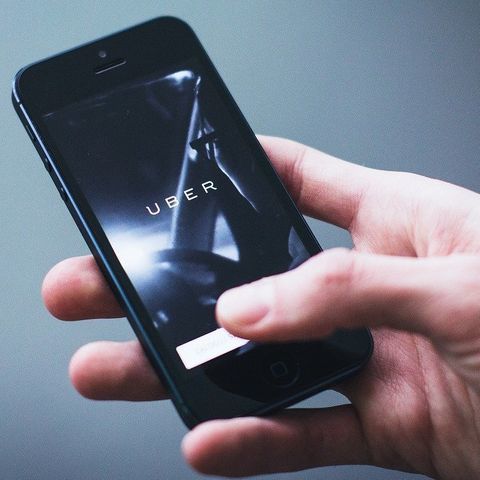
This November, California voters are being asked to support Proposition 22 — Uber and Lyft’s misleading ballot measure that would exempt them from labor laws that protect workers. Together with Postmates, Instacart, and Doordash, these wealthy corporations are spending nearly $200 million to pass Prop. 22, making it the most expensive ballot measure in state history. That level of unprecedented spending should alarm California voters and alert passengers that something is amiss.
California law and policy is clear that these workers are employees and entitled to the same protections and benefits as all California employees. Under the guise of supporting worker flexibility and freedom, these companies pocket billions by misclassifying their drivers as independent contractors. What the carshare companies expect to get from this massive investment is permanent legal protection for their refusal to provide drivers who work for them with the basic benefits due regular employees, like paid sick leave, unemployment insurance, or healthcare.
Al Aloudi, a ride-hail driver in San Francisco, was working behind the wheel in March and brought COVID back to his home. “I was driving in the beginning of March, [and] my dad began showing symptoms of COVID by March 15th. He turned blue and couldn’t breathe, so we called an ambulance to the house and he tested positive,” Aloudi reported. Quarantined and unable to work, Aloudi applied for Uber and Lyft pandemic relief programs. He sent the companies a doctor’s note requiring that he quarantine, but both companies denied him paid sick time and temporarily deactivated him.
Written by lawyers for Uber and Lyft, Proposition 22 aims to enact a special category of labor for gig drivers that reduces the companies’ responsibility for the safety and wellbeing of both drivers and passengers. While protecting their own liability, the companies hope to reassign liability to the immigrants and workers of color who make up a substantial proportion of their low-wage employees.
The pandemic has worsened the already unstable, unpredictable working conditions of ride-hail drivers. A recent survey conducted by Rideshare Drivers United shows that only 29% of drivers are still driving despite pandemic conditions. Because drivers know the risks, a vast majority surveyed (92%) say Uber and Lyft should be providing safety supplies. With drivers’ significant out-of-pocket costs, only 7% have provided barriers between the front and back seats, despite CDC recommendations. Only 62% sanitize between passengers, because that time is unpaid, and drivers say they simply cannot afford to take the time off the road. What these statistics show is that safety is closely linked to labor conditions.
In addition, Prop. 22 will exempt employers from providing personal protective equipment, ensuring access to sanitary facilities, or assessing the risk of workplace violence, including sexual and physical harassment. And without paid time off or paid sick days, drivers will have little choice but to work while sick and or injured — exposing riders to illness and increased chance of accidents.
One driver from Los Angeles who is still driving is Ben Valdez. “I bought and made my own partition to separate me from my passengers. Even during this time I still have people reaching over to pat me on the back or poke me. I am afraid of going to the back of my car and handling my passengers’ bags,” said Valdez. “I spend at least $50 a week on cleaning supplies and I’m not paid for the time it takes to clean my car. If Uber and Lyft obeyed the law and treated me as an employee, I would have access to unemployment and wouldn’t have to choose to earn money at an extremely high risk, or stay at home and risk not paying my bills.”
The contempt that these gig economy giants have for the public is exemplified by the measure’s unprecedented requirement of a seven-eighths’ majority of the legislature to amend the rules drafted by Uber and Lyft. These companies are trying to deceive voters into passing their special rules, and then bar our representatives from ever touching that law again.
Meanwhile, drivers who don’t earn enough money and are denied basic protections work harder and longer hours, and are forced to take more risks to secure more rides. As businesses and schools reopen, more and more drivers will get back on the road — and without proper cleaning and protections supplied by the employer, riders will pay the price as well.
This is a historic battle under way in California to reset the balance between employers and employees by ending Uber and Lyft’s cynical manipulation of labor law. California voters should reject the premise that, given enough power and money, companies can simply deregulate themselves.


